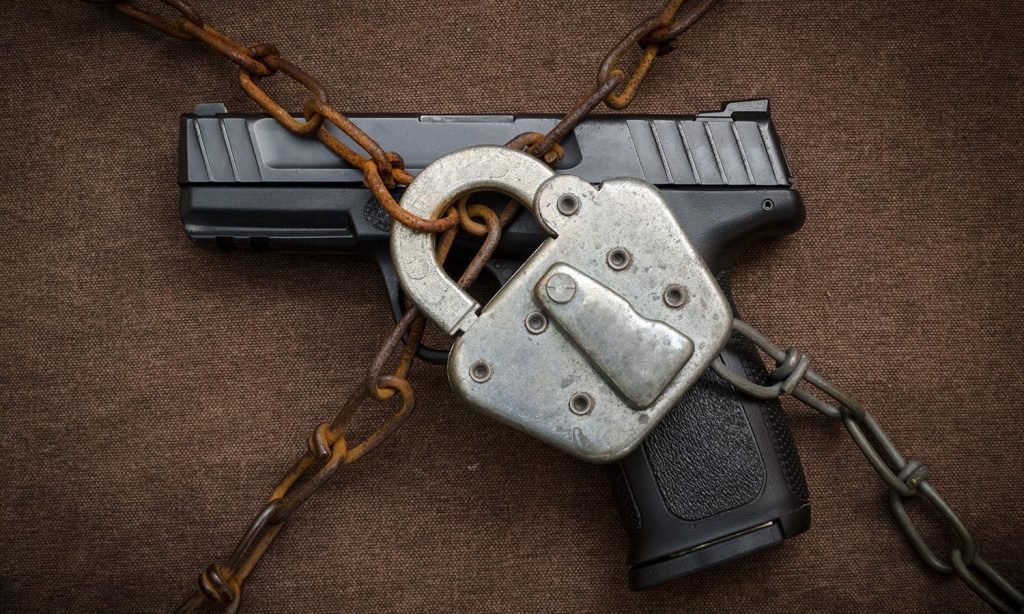Big Data is one of those terms that seems to promise much and deliver little. Now frequently talked about by everyone from research scientists to branding analysts, most of the time the term sounds more like an empty trend than a real advance.
Now, though, Big Data might have found a real-world use, and an important one: preventing gun crime. Advocates of collecting even just the most minimal data on gun purchases claim that some recent US massacres could have been prevented by the use of data analysis tools.
Collecting data on gun purchases is, of course, a hugely controversial issue, and even the idea of this is liable to irritate gun enthusiasts. That said, it is worth noting the situation we are currently in, where almost no data is collected at all. There is no national database of gun owners, and measures to implement one have always met with ferocious opposition. Most states don’t require a license to buy or own a gun.
By collecting small amounts of data on gun purchases, and using data tools to analyse this, it might be possible to flag potentially dangerous individuals.
Proponents of using Big Data in this waypoint to several recent shootings, and the purchasing histories of those involved, as examples of how their approach could work. James Holmes, the Aurora shooting suspect, is a case in point. He visited three different locations, spread out across 30 miles, to buy the four weapons that were used in the shooting. In addition, he bought thousands of rounds of ammunition and assault equipment online, with UPS delivering around 90 packages to him in the months leading up to the shooting.
Even the most basic form of data collection could have made this known to the authorities before the shooting took place. It doesn’t take a genius to work out that if someone with a known history of mental health issues suddenly stocks up on guns and ammunition, there might be cause for concern.
Stories like this abound. It seems that in almost every case of mass shooting in recent years, the shooters’ purchasing history might have given law enforcement advance warning of an attack.
And though a database keeping track of gun ammunition purchases can be referred to as Big Data , in reality, such a database would be tiny in comparison to those already in use by both government and private firms. In comparison to the huge databases set up to analyse consumer trends, a simple system to note each time an AR-15 is bought would be very easy to set up, especially considering their recent increase in sales.
The numbers are instructive. According to ATF, about 4.5 million new firearms are sold in the US annually. In addition, about 2 million second-hand guns change hands every year. Ammunition is a bit harder to track, but as a yardstick, the US Military bought 1.8 billion rounds last year.
While these may seem like huge numbers, they are dwarfed by the amount of data that other companies collect. The data generated by all these sales would fit on a pen drive. Consider, in comparison, that Walmart sees many times this many of purchases daily, and has absolutely no trouble keeping track of them.
The problem, as ever, is the political will to even begin to implement such a database. The NRA, in particular, is dead against any form of firearm tracking, fearing that a database like this is the first step toward further restrictions on gun ownership and use. Whilst I understand such concerns, it is worth remembering that we regularly put up with our purchases and movements being tracked, and do not complain that these are a restriction of our freedom.
For instance, board any plane and your details will be entered into a database. Try and buy an air ticket with cash, and you will be taken aside by security. Even when buying everyday medicine, your details will be entered into a national database. Every time you use your phone, your carrier is permitted to collect data on your usage, and US Law enforcement already uses this data to predict and prevent crime.
The problem, as always, is that with anything to do with guns we are blinded by the symbolic force that our right to carry weapons has assumed. This is a shame because we have made one of the most dangerous tools in our society the firearm a symbol of our rights as Americans, and there will always be people who misuse them.
